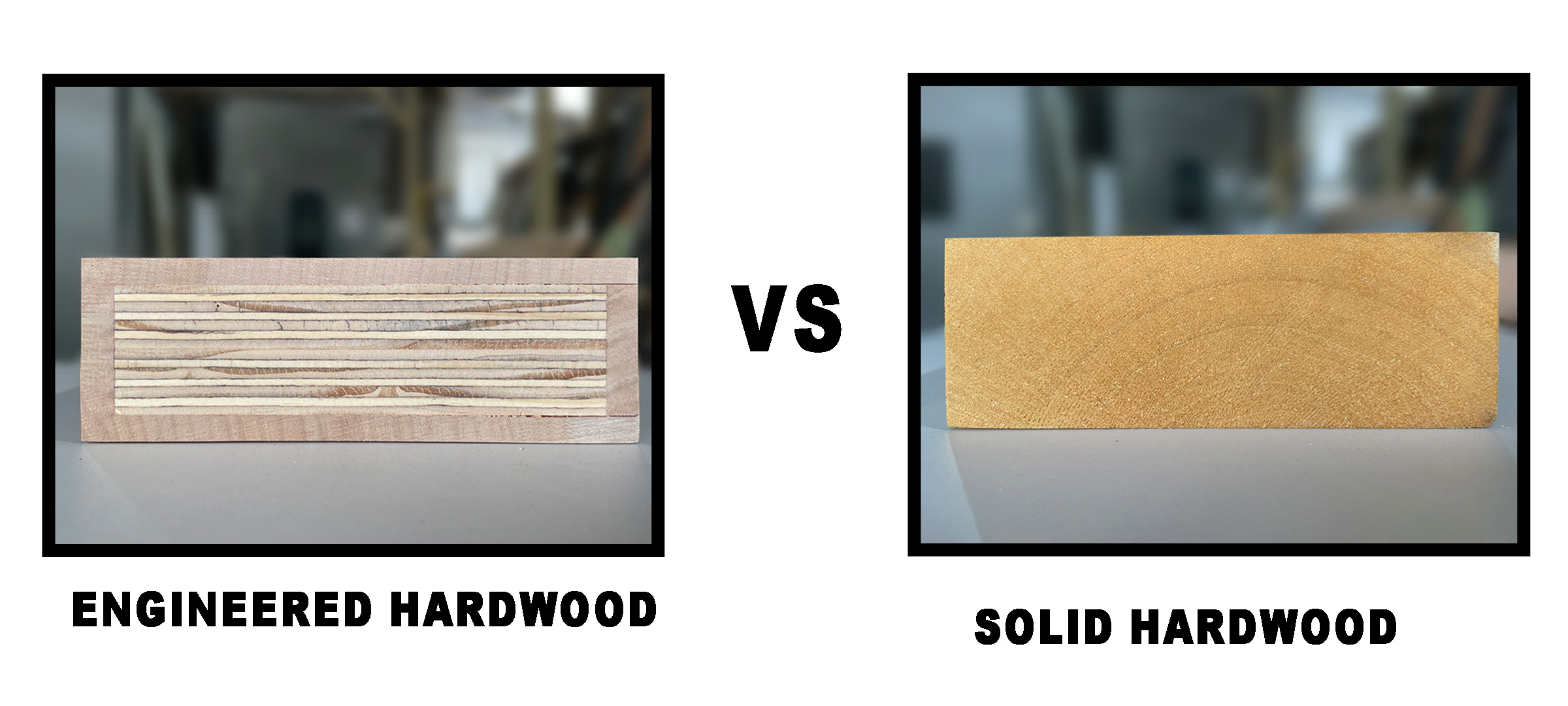- Interior Doors
- Shower Doors & Shower Screens
- Sliding Bypass Closet Doors
-
Hardware & Accessories
- Shower Glass Doors Accessories
- Sliding Door Hardware
- Sliding Door Locks
- Pocket Doors Hardwares and Locks
- Hinged Glass Door Hardware
- Hardware & Locks For Double Hinged Glass Doors
- Pivot Wooden Hardware
- Hinged Wood Door Hardware
- Closet Sliding Door Hardware
- Sliding Pocket Door Hardware
- Handles & Flush Door Pulls
- Handle-Locks
- Frames, Jambs & Casings
- Liquidation Sales
- Blog
- Custom Doors
- Specifications Glossary
Engineered Hardwood vs Solid Wood

What is engineered wood (multilayer parquet)?
Engineered wood or multilayer parquet merges natural wood beauty with an engineered structure to enhance stability and performance. This material consists of multiple layers which sets it apart from solid wood. The hardwood surface layer made from species like oak or walnut delivers aesthetic appeal while the plywood and wood-based inner layers arranged crosswise provide enhanced strength. The layered structure of engineered wood gives it exceptional structural stability so it remains undamaged by humidity changes and temperature fluctuations. The stability of engineered wood makes it an appropriate choice for environments where temperatures and humidity levels change frequently including heated or air-conditioned spaces and high humidity areas. Engineered wood proves to be a more sustainable and efficient material because it requires reduced amounts of hardwood for each product piece. Engineered wood maximizes natural resource usage while maintaining necessary mechanical strength and visual appeal for products like heavy-duty doors.
Benefits of Natural Solid Hardwood:
Solid wood refers to a single-species wood block with uniform characteristics throughout its composition. The natural wood construction of each item results in an authentic look and a texture that many people find superior. Solid wood has served carpenters for hundreds of years and continues to be a top selection for people appreciating both authenticity and the distinctive patterns in each wood grain. The use of solid wood in door manufacturing delivers remarkable strength and hardwoods enhance this with superior durability. Solid wooden doors can be restored and sanded multiple times during their service life. However, this nobility also has its downside: Solid wood reacts more easily to variations in environmental conditions. Without proper environmental control solid wood doors will expand when humidity rises or contract when it falls and they may develop cracks.
What separates the two types in door manufacturing?
Each option provides unique benefits designed to fulfill separate customer requirements. People who desire doors with natural beauty as well as strong structural support should choose engineered wood. The layered construction creates remarkable resistance to warping which makes this material ideal for interior doors installed in areas with fluctuating climates or those with central heating systems. The layered design allows manufacturers to produce larger or thinner panels while keeping their strength intact. Solid wood creates the ideal material for endeavors that prioritize traditional craftsmanship and authentic appearance. Solid wood doors exhibit a powerful visual impact which is emphasized by their substantial heft that signifies strength. Solid wood doors need careful maintenance and consistent environmental conditions to maintain their quality.
Conclusion
Engineered wood offers superior design flexibility and robust sustainability for modern door manufacturing purposes. Solid wood stands as a traditional and enduring choice suitable for those who appreciate heritage and maintain proper conditions to preserve it. Both materials are high quality: The choice between engineered wood and solid wood depends on factors like style preferences, financial constraints, intended usage and installation environment.
